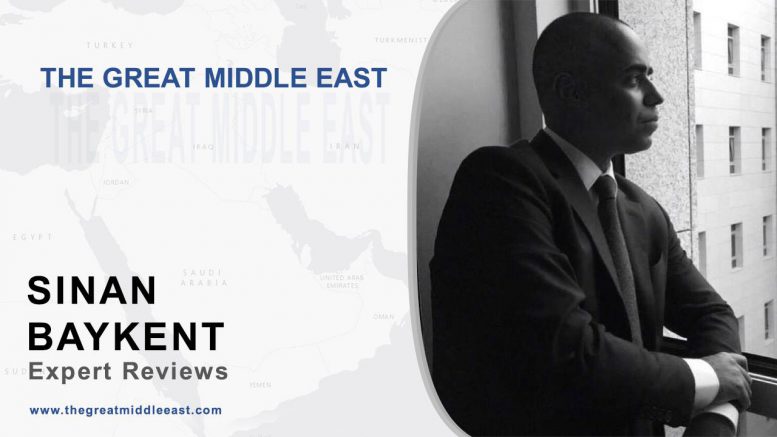During the night of July 15th, elements of Gülenist terrorist organization infiltrated in the armed forces, with the support of some foreign circles, tried to seize power in Turkey but this bloody attempt crushed into the rock wall of the national will.
The Grand National Assembly of Turkey, for the second time in its history, received the honorary name of “Gazi” (veteran); in spite of the falling bombs, the Parliament did not stop its session, thereby showing an example of absolute courage.
Republicans, conservatives, nationalists and some leftists – that is to say nearly all of national forces – spontaneously formed an alliance in order to repel the treacherous attack, controlled and organized from the evil’s nest. On this dark night of July 15th, the people demonstrated an extraordinary spirit of national solidarity.
Turkey has had enough from military coups. Acting in accordance with the strategy of Masonic lodges, juntas of different scale, unfortunately, are no small part of the history of Turkey.
There is absolutely no doubt: The coup of July 15th was perpetrated and organized by the so-called “preacher” Fethullah Gülen, a refugee living in the United States since 1999. It is in fact a coup with CIA and probably NATO savors – since it is unimaginable that this “preacher” established in Pennsylvania would undertake any actions without obtaining the approval of US intelligence.
The Gülen network had in the past, between 2008 and 2014 to be exact, organized a purge against the eurasist officers of the Turkish Army by the hand of its members infiltrated in the legal apparatus of the State. In time, this was considered a purge conducted by Erdoğan in order to exclude Kemalist Army officers. However with the considerable extension of this exclusion movement, even Erdoğan had come to the point to say that prosecutors orchestrating these operations “were perhaps animated with bad intentions.”
Already in 2012, Erdoğan was deeply annoyed when his former Chief of Staff (yet Kemalist) was arrested for “leading a terrorist organization” by prosecutors related to Gülen. Similarly, the head of intelligence Hakan Fidan, a close to Erdoğan, was also called to be interrogated by the police about a case of “high treason.” In fact, the political process leading to the failed coup of July 15th had already started, one might say, in 2008 with the famous trial of Ergenekon – intended to eliminate first the Kemalist wing of the Army, then Erdoğan along with his party. Gülen (perhaps along with the CIA and NATO) wanted, through this whole process, first to remove eurasist officers and subsequently Erdoğan himself to impose a regime – with flavors of “moderate Islam” in Turkey (promoted by the “preacher” through his involvement in the “interreligious dialogue” aimed at destroying all monotheistic religions to submit them to the authority of worldwide Freemasonry).
In sum, we can say that the coup of July 15 has fortunately missed. Opposition to Erdoğan’s power is one thing; abandoning Turkey to an emblematic figure of Freemasonry is another one. These two facts should not be confounded. For the Turkish people, the opposition to the coup reflects the desire to ensure and safeguard a purely national order. Opposition to the coup does not automatically and mechanically mean unconditional support to Erdoğan; it’s rather a way to express the supremacy of a national attitude vis-à-vis the non-national attempt to seize power by slaughtering innocent people.
Let me give a last example (an historical one) that I believe is utterly convincing in order to properly understand the signification of July 15th.
On the March 31st of 1909, Sultan Abdülhamid II was plagued by a Masonic plot and removed from office by a coup d’Etat. This plot was perpetrated by the Young Turks, mainly composed of Freemasons – as demonstrated by Ibrahim Temo, the Albanian founder of Young Turks who was directly inspired by the organizational structure of the lodge of Carbonari in Italy.
After Young Turks seized power, the whole Ottoman Empire started to crackle from West to East. Young Turks triggered ethnic orientated nationalism through the empire (which is still largely in effect in the Turkish Republic) and lost important shares of land in Balkans and Middle East. The Foreign policy of Istanbul was put in service of Germany and the Army in hands of German generals. In result, Sevres Treaty was signed on August 1920, annihilating and dividing Turkey into small pieces.
At time (since 1789 to be exact) global Freemasonry was aiming at dislocating strong empires, like the Ottoman Empire but also Tsarist Russia. The enemy in Ottoman Empire was Abdülhamid II whereas in Russia it was Nicholas II. Nowadays the same plot is still in progress, verily with different actors but with the same goal: destroying what is “national”! In the beginning of the 20th century main methods to raze national union was – sadly – ethnic nationalism itself. Today, it’s all operating behind the smoky screen of “democracy”. Methods, actors and justifications may vary; but the core idea remains essentially the same.
Erdoğan has its faults, its errors of assessment and grievances. Abdülhamid II had certainly his too. As I emphasized it earlier; the opposition to the masonic coup does not mean unconditional support for Erdoğan. It is rather an expression of the people’s will to defend the national order from international masonic aggression.
Whether bad or good, sympathetic or antipathetic – Erdoğan is a national figure with national aspirations. Gülen, on the other hand, reminds more of a snake with its head in the US and its tail in Turkey.
Unfortunately, Turkish people could not correctly understand in detail the scope of the plot which took place in 1909 against Abdülhamid II.
Fortunately, he was awakened in 2016 when this time, the plot aimed at Erdoğan.
Now it’s time for Turkey to (re-)build its national order to prevent such plots to occur in future.
Get to work!



Be the first to comment at "Sinan Baykent: Turkey: The People in Quest of a National Order"